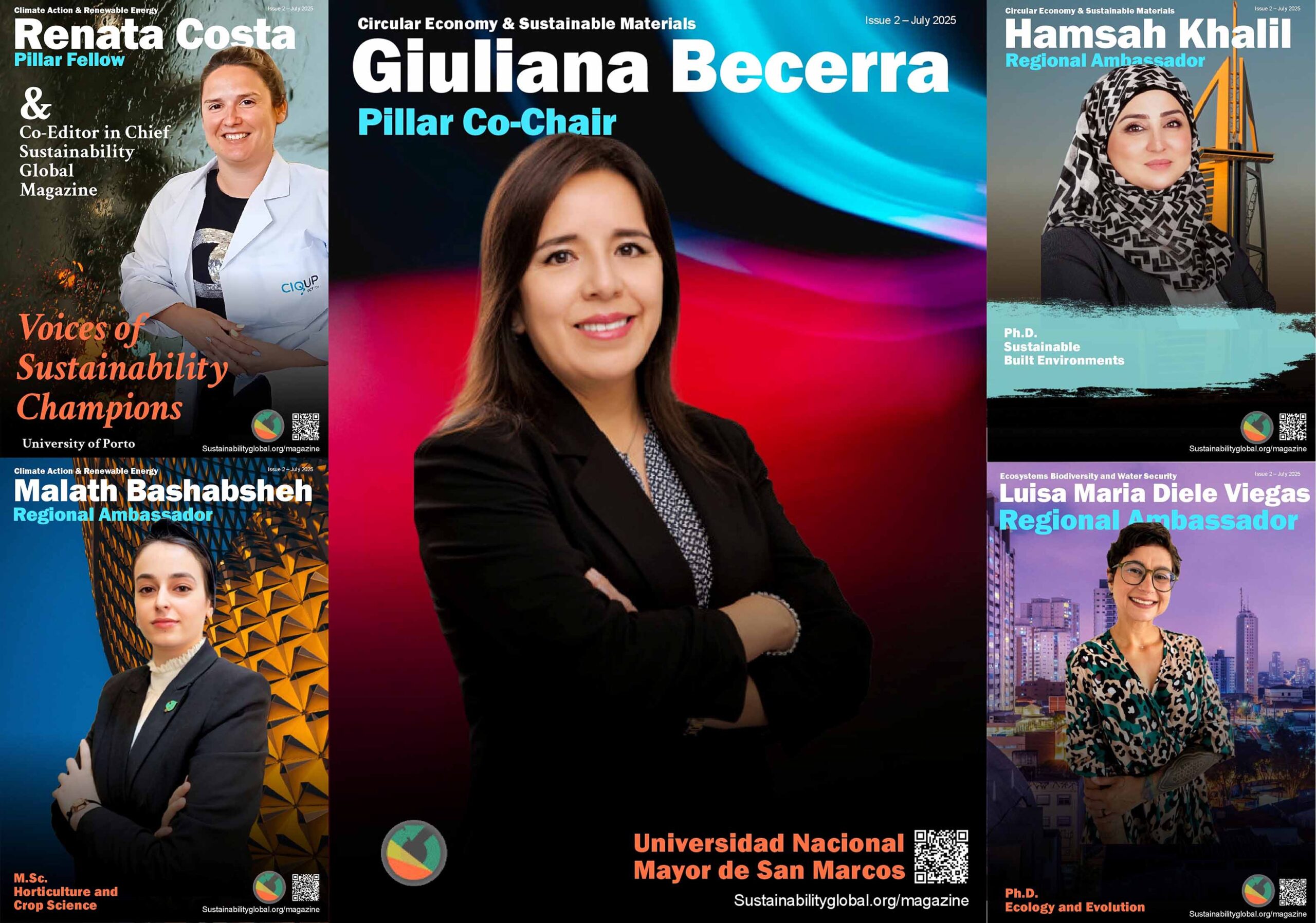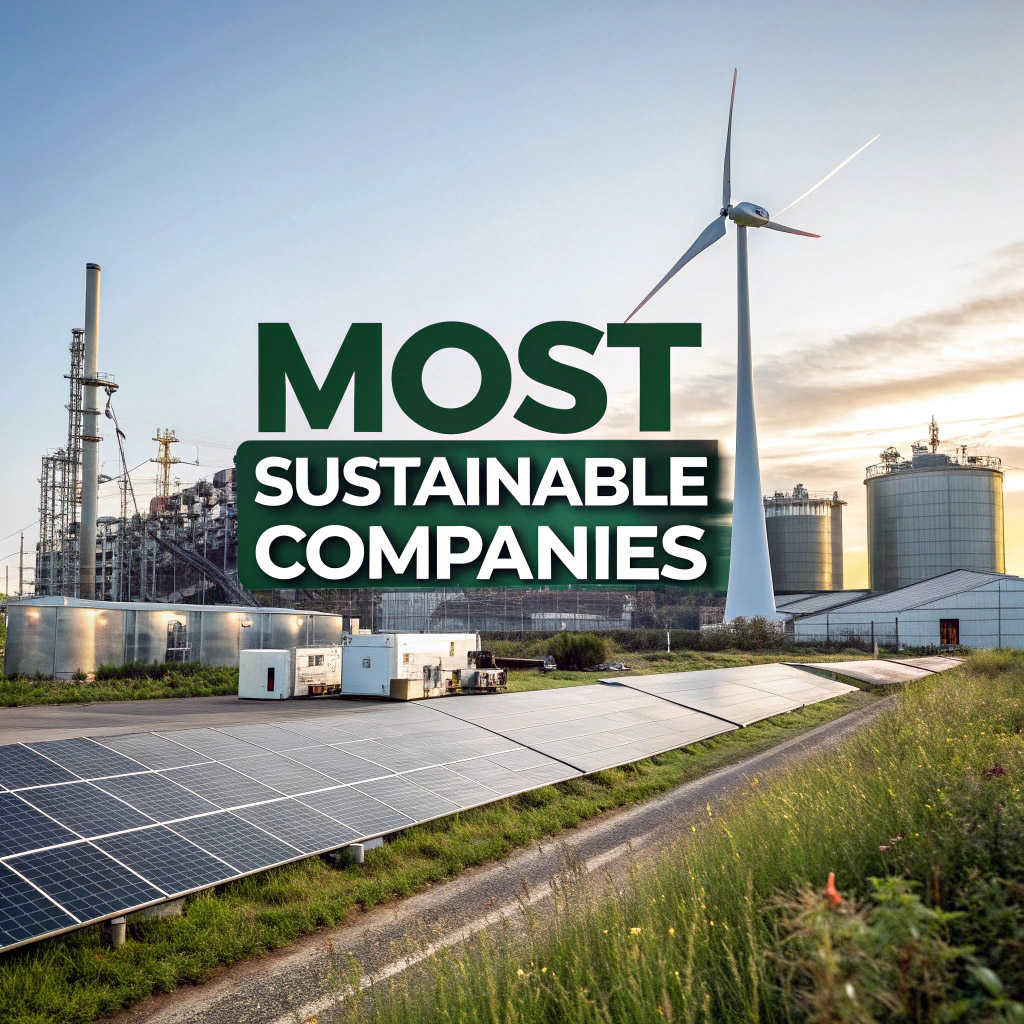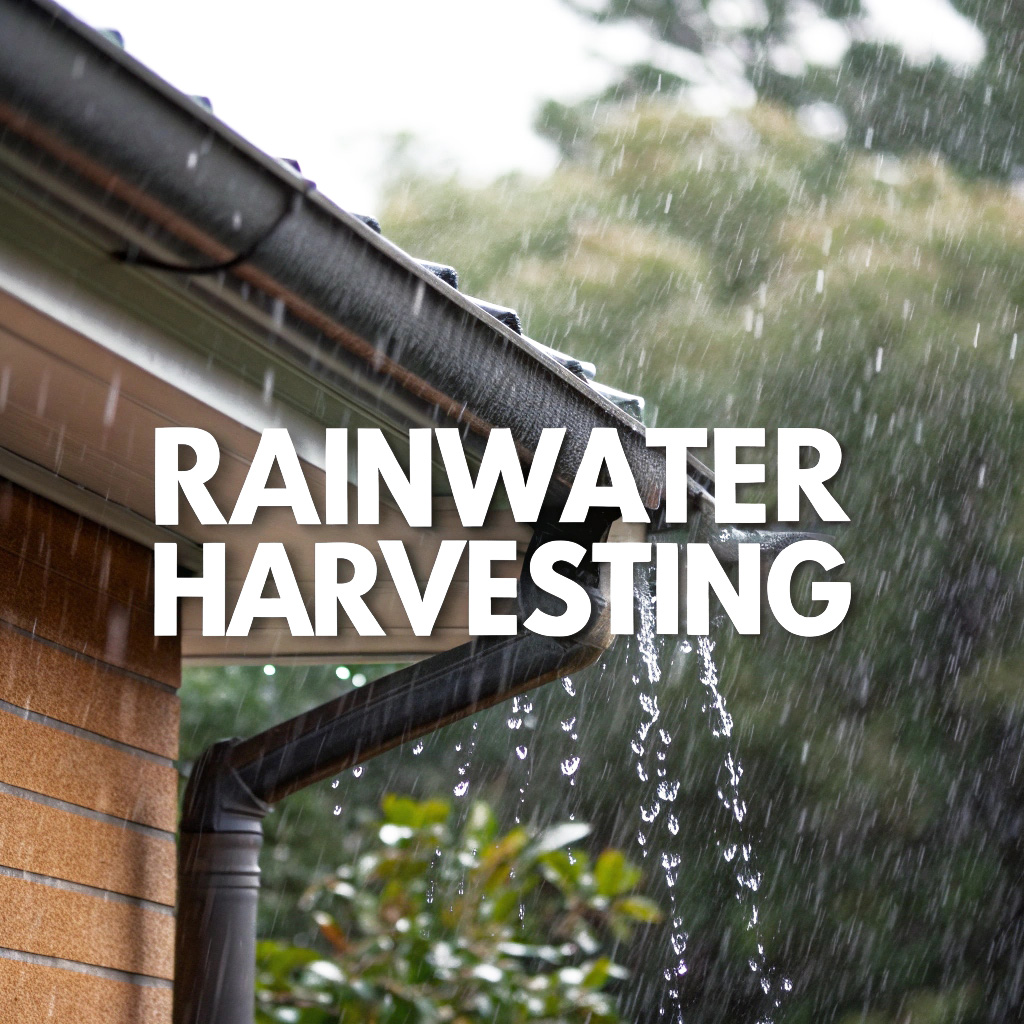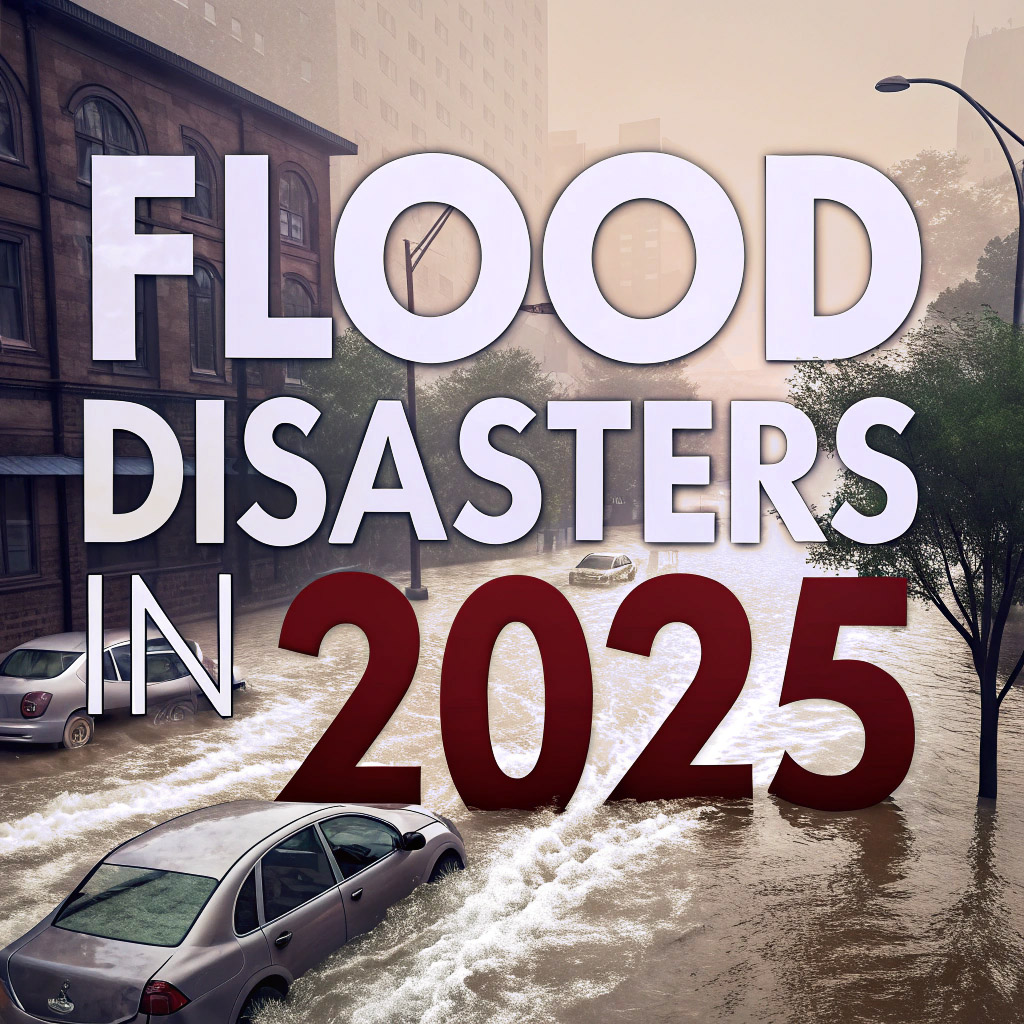Discover the inspiring mission statements of our dedicated members, as featured in Sustainability Global Magazine – Issue 2. These reflections highlight the passion, purpose, and personal commitments driving our global community toward a more sustainable future.
Dr. Renata Costa
Pillar Fellow and Co-Editor in Chief Sustainability Global Magazine

Mission Statement: We are living in a time of profound uncertainty, with the world navigating overlapping crises, geopolitical tensions, energy insecurity, and climate-related risks. In moments like these, I believe scientists have both a moral and strategic responsibility: to bring clarity, truth, and solutions to the forefront.
As a researcher in electrochemistry, analytical chemistry, and more recently environmental economics, I’ve always believed that science is more than discovery. It is a form of service to society. Nowhere is this more evident than in how we power our lives. Energy is not just a technical issue; it is a human right, a foundation for peace, prosperity, and environmental survival. It lights our homes, powers our hospitals, connects our communities, and moves the world. Yet, energy can also be wielded as a weapon in times of conflict, deepening divisions and exposing the vulnerabilities of nations and people alike.
I’ve spent years studying the science behind electrified interfaces and clean technologies. But beyond the lab, what drives me is the belief that everyone deserves access to safe, sustainable energy, without compromising the health of communities or the planet. Energy should never be used as a tool of leverage or control but as a force for shared progress and global stability. As a Pillar Fellow for Climate Action and Renewable Energy, I see our role, as scientists, researchers, and global citizens, as bridge-builders: connecting facts to action, innovation to policy, and people to possibility.
The International Energy Agency reminds us that we already have many of the tools we need: solar, wind, green hydrogen, smart grids, and energy storage. What we now need is a commitment, political, economic, and scientific to scale these solutions rapidly and equitably.
In this role, I believe there are three key directions:
a)-Pushing Clean Energy Forward
The scientific community must continue innovating, making renewable energy sources into solutions more efficient, affordable, and accessible to all.
b)-Building Fair and Resilient Energy Systems
Clean energy must reach every community, not just the wealthiest. This means smarter grids, inclusive infrastructure, and policies that protect the most vulnerable.
c)-Turning Global Goals into Local Action
The real change happens when science, people, and policy come together into global cooperation.
This mission grounds my professional path and personal purpose: to be a changemaker for future generations. Scientists must not only talk about change, we must help make it happen. In particular, choose wind over smoke, sunlight over soot, and solutions over excuses.
Let’s keep building Sustainability Global.
Idea by idea, action by action.
Malath Bashabsheh
Regional Ambassador at Sustainability Global
M.Sc. Horticulture and Crop Science

Mission Statement: As a young Jordanian climate activist, I am filled with both concern and hope. Since I’m from the Middle East, which is severely affected by climate change, I am able to witnesses the close connections between social justice, agriculture, renewable energy availability and environmental challenges. I’ve devoted my voice and energy to advocating for equitable, realistic, and inclusive climate action. I hold a master’s degree in horticulture and crop science and have a strong dedication to sustainability.
Building a bridge between science and society is my goal. I work to make knowledge accessible, whether I’m researching sustainable agriculture or creating projects with a climate focus. On my LinkedIn account, I frequently engage with a growing network of young change-makers, particularly from the Global South, by sharing opportunities, insights, and climate education. I believe that online platforms can be great tools for igniting movements and giving voice to marginalized people.
Through global fellowships, fieldwork, and green-climate hackathons, I’ve experienced the wonder of creation that comes from intersectional disparate ideas. Personally, changing how we produce food into an agriculture powered by renewable energy and giving rural young people and women the role to participate in such change greatly interests me. Sustainability should apply to everyone, no one should have to struggle for their basic rights.
I can be very confident saying first that regarding adaptation challenges in the region, the Middle East is under immense pressure but at the same time has all opportunities here to be at the forefront and second saying that I want to take responsibility in doing so through impact-based education initiatives on-the-ground collaborations.
Dr. Hamsah Khalil
Regional Ambassador at Sustainability Global
Ph.D. Sustainable Built Environments

Mission Statement: The circular economy is more than a model—it’s a mindset that reimagines waste not as an end, but as a beginning. In a world increasingly constrained by finite resources and growing environmental pressures, circularity offers a regenerative path forward—where design, use, and reuse form a seamless loop of value creation.
At ESAC Group, I spearhead regional policies and technical frameworks that integrate circular economy principles across sectors—from hazardous materials to green infrastructure. Our work bridges science, regulation, and innovation to shift mindsets and systems. Through collaborations with international platforms such as the International Solid Waste Association (ISWA), I contribute to building capacity for sustainable materials management and circular policy in both emerging and mature markets.
As Regional Ambassador with Sustainability Global, I see my mission as empowering the Global South to move beyond reactive waste control toward proactive resource stewardship. This involves fostering data-driven decision-making, designing with disassembly and reuse in mind, and creating economic models that reward longevity over linearity.
Inspired by global pioneers—like Finland’s material flow taxation, Amsterdam’s circular city vision, and Singapore’s integrated zero-waste model—we aim to localize best practices through culturally adapted, equity-centered implementation. Circularity must not only make environmental sense—it must make social and economic sense, too.
My ambition is to help shape cities and systems that can ‘unmake waste’ before it begins—through bold ideas, creative coalitions, and uncompromising commitment to sustainability.
Dr. Luisa Maria Diele Viegas
Regional Ambassador at Sustainability Global
Ph.D. Ecology and Evolution

Mission Statement: The mission of the Ecosystems, Biodiversity & Water Security pillar is to champion integrated, inclusive, and science-based solutions for a world in ecological transition. Our ecosystems are archives of cultural memory, providers of resilience, and essential to climate stability. Yet, they are increasingly endangered by extractive development, colonial legacies in land use, and uneven access to science and policy influence.
As a scientist from the Global South, I work at the intersection of biodiversity conservation, physiological ecology, and environmental justice. Through the BioDivA Lab’s transdisciplinary model, we co-create knowledge with local communities, bridging traditional ecological knowledge with cutting-edge ecological modeling and physiology to understand how species and people respond to climate change. Water security, species persistence, and healthy ecosystems are interconnected challenges that demand both scientific rigor and an ethic of care.
This pillar also serves as a space to amplify the voices of underrepresented scientists, particularly women and Indigenous leaders, whose contributions are often overlooked yet foundational to sustainability. The future we envision centers on equitable governance, knowledge co-production, and systems thinking that values diversity in all biological, cultural, and epistemological forms. To protect what remains, we should restore what we can and reimagine our relationship with nature in ways that heal rather than harm.
Prof. Giuliana Becerra
Pillar Co-Chair at Sustainability Global
Universidad Nacional Mayor de San Marcos

Mission Statement: In a world facing climate crisis, biodiversity loss, and resource depletion, it is urgent that we rethink how we produce, consume, and interact with materials. The Circular Economy & Sustainable Materials Pillar at Sustainability Global is committed to driving a deep transformation—moving beyond the outdated linear model of “take–make–dispose” toward an economy that conserves, regenerates, and values every resource.
Our mission is to promote practical and collaborative solutions that redesign processes, foster innovation in sustainable materials, and support a new development vision—one grounded in efficiency, equity, and respect for planetary boundaries. Circular economy is not only a technical pathway; it is a broader vision that connects science, culture, community, and purpose.
This pillar seeks to build bridges across sectors, regions, and knowledge systems. We believe in the power of collective action—bringing together researchers, entrepreneurs, policymakers, students, and citizens—because lasting solutions emerge through dialogue, diversity, and shared commitment.
Our strategic priorities include:
- Creating platforms for dialogue and knowledge exchange through publications, forums, and global networks
- Supporting emerging leadership committed to a just circular transition
- Sharing tools, metrics, and real-world experiences to enable implementation in diverse contexts
- Strengthening cooperation between regions to promote inclusive, innovative, and locally grounded solutions
Advancing circularity means more than reducing waste. It is about redefining value, thinking in cycles rather than endpoints, and understanding that systemic change begins with collective decisions.
Through this pillar, we reaffirm our commitment to building a future that is circular, resilient, and human-centered. We invite all individuals and institutions committed to sustainability to join us on this journey. The transition to a circular economy is not a distant goal—it is already underway. With every idea shared, every project implemented, and every limit challenged, we move closer to a world where prosperity is redefined—not solely by growth, but by regeneration, equity, and care for our shared planet.




